Our goal is to support sustainable development. For this purpose, we work on projects in the field of energy consulting and realization of renewable energy, in research and development, awareness raising, as well as in renewable energy with business partnerships outside Europe.
The following is an excerpt of our activities:
Next GEn
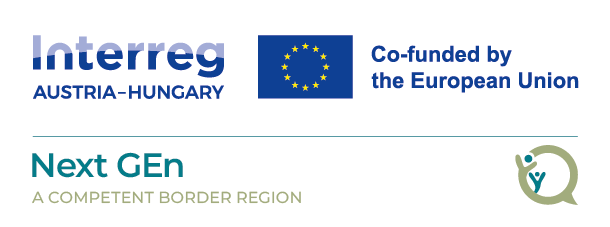
Next GEn (ATHU-0100024) is a Hungarian-Austrian INTERREG project to alleviate the shortage of skilled labour in the renewable energy sector in the medium and long term by developing a multi-layered innovative vocational orientation model for 10 to 15-year-old pupils who are about to choose their further education pathways.
KLAR Oberes Liebochtal
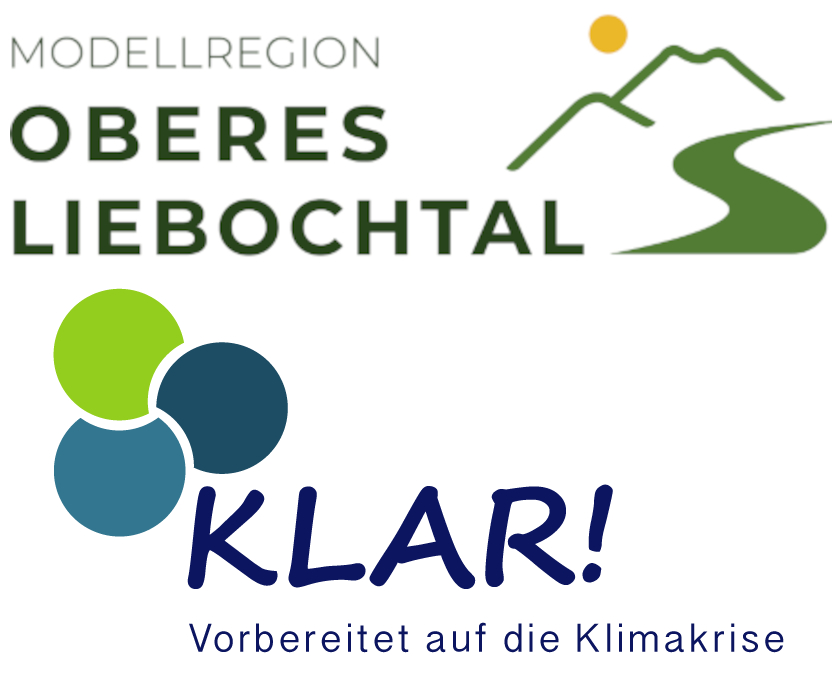
Climate change adaptation aims at already existing and future climate changes (e.g. increase of heat days). The aim is to take anticipatory measures to reduce damage and take advantage of opportunities that arise. Since May 2022, the Obere Liebochtal has also been a climate change adaptation model region consisting of the market town of Hitzendorf and the municipalities of Sankt Bartholomä, Sankt Oswald bei Plankenwarth and Stiwoll, which was expanded to include the market town of Thal in May 2024. Within the framework of the climate fund programme, the municipalities have set themselves the goal of taking the following 11 adaptation measures based on the advancing effects of climate change in order to position themselves as a region for living and working and to make themselves fit for the future and the climate. The 11 measures are climate-smart building, climate-smart local recreation, climate change adaptation in schools, climate-smart and regional orchards, nature in the garden, promoting voluntary work, climate-smart agriculture, shading, brochure for climate-smart living, security of supply with drinking water, and forestry and climate change.
Modellregion Oberes Liebochtal (German)
KEM Oberes Liebochtal
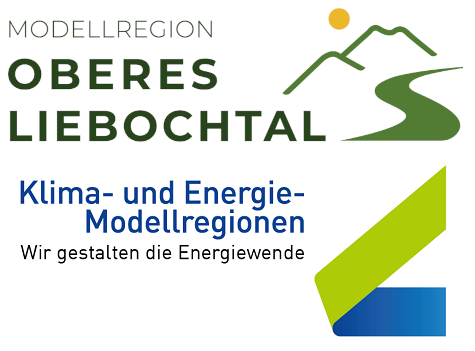
The market town of Hitzendorf and the municipalities of Sankt Bartholomä, Sankt Oswald bei Plankenwarth and Stiwoll have been a climate and energy model region since October 2021, which was expanded to include the market town of Thal in October 2023. Together, the municipalities want to implement projects in the field of climate protection and promote the energy transition as the " Modellregion Oberes Liebochtal". In the process, 11 measures have already been implemented in the 1st phase and a further 10 measures have been developed for the 2nd phase, which will be implemented jointly in two years. The 10 measures are intensification and expansion of energy accounting, sustainable consumption and local supply, expansion offensive for photovoltaics and electricity storage, optimisation and sensitisation of cycling, optimisation of public transport and micro-public transport and promotion of e-mobility, energy consultations and support in the processing of subsidies with a focus on the regional heat transition, promoting local biomass heating and microgrids, making existing events more climate protection-oriented, disseminating specialist information with a focus on the regional heat transition and a climate protection library, as well as energy optimisation of the wastewater treatment plant of the Abwasserverband Nördliches Liebochtal.
Modellregion Oberes Liebochtal (German)
Klima- und Energie-Modellregionen (German)
EEG Energiegemeinschaft Bartholomä
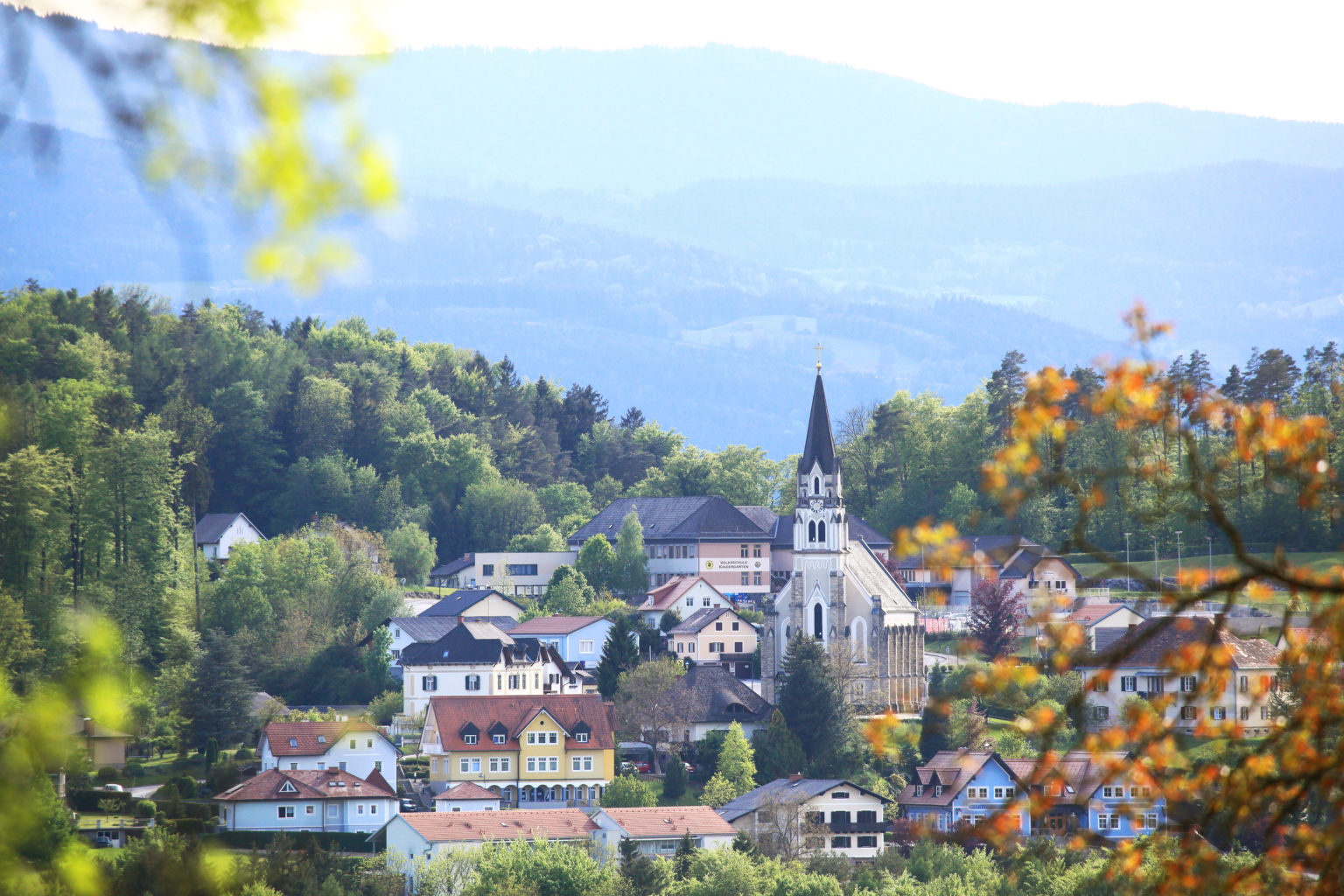
The municipality of St. Bartholomä owns several PV systems and uses them to cover part of its own electricity demand. The surplus electricity is to be made available to socially disadvantaged members of the community and households with many children at a socially acceptable and stable long-term price. Other existing or planned PV systems owned by the municipality of St. Bartholomä will be incorporated into the renewable energy community as the project expands. Currently, up to 25 socially disadvantaged households or households with many children could be supplied via the renewable energy community. After informing the municipality members and registering interested persons, the municipality and the parish of St. Bartholomä will jointly select the households to be included in the renewable energy community according to social criteria (e.g. receipt of social welfare, heating cost subsidy).
EEG Energiegemeinschaft Stiwoller Ortskern
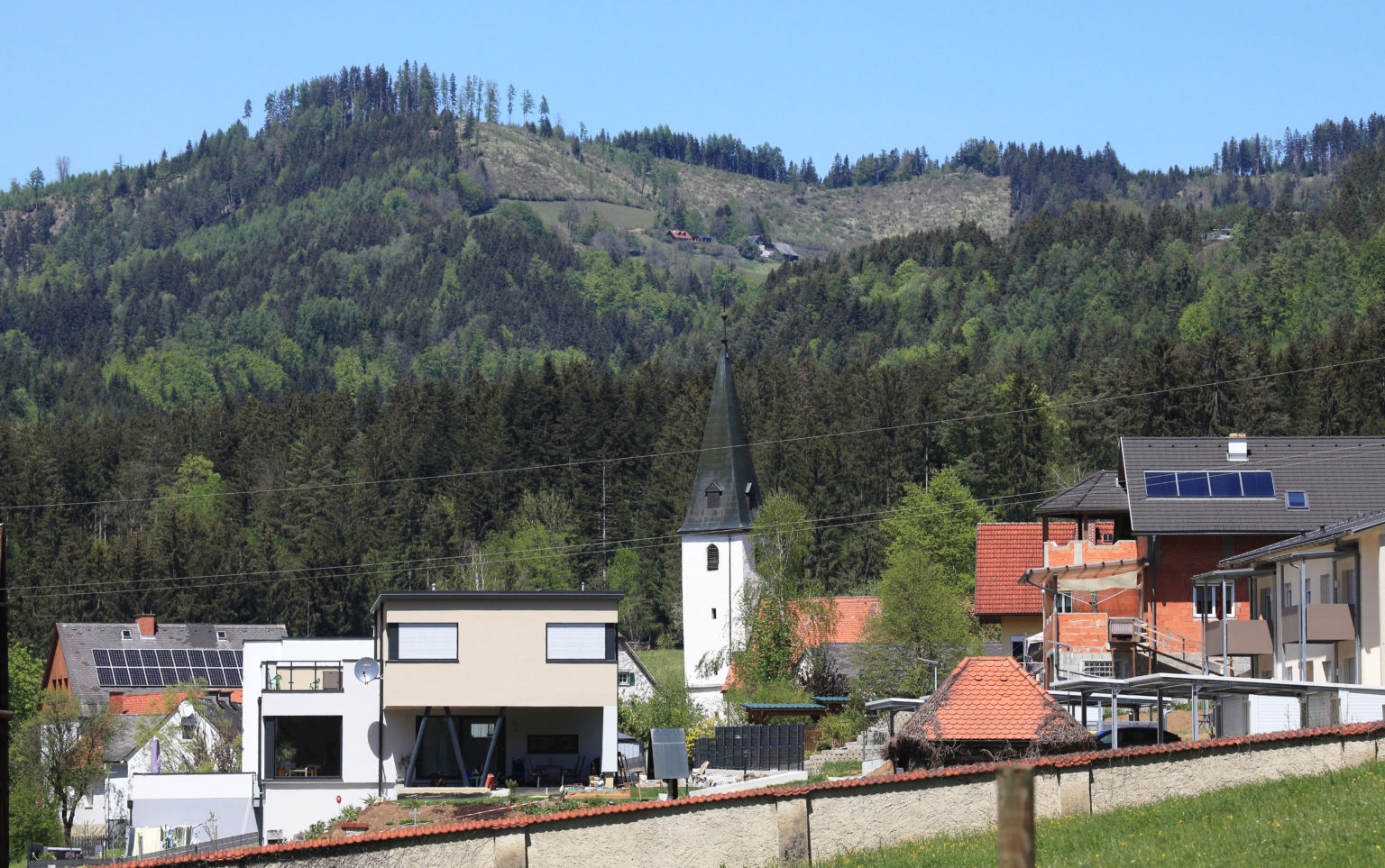
The municipality of Stiwoll owns three PV systems and uses them to cover part of its own electricity demand. The surplus electricity is to be made available to local suppliers and the local restaurant at a fair and stable long-term price. The aim of the renewable energy community is to achieve and support energy independence for local businesses. This should prevent the migration of local suppliers, restaurants and other local businesses and thus maintain a sustainably attractive living environment for members of the community. Further planned PV systems in the municipality of Stiwoll will be incorporated into the renewable energy community when the project is expanded and further regional businesses will be supported by the EEG.
EEG Dreiklang 1
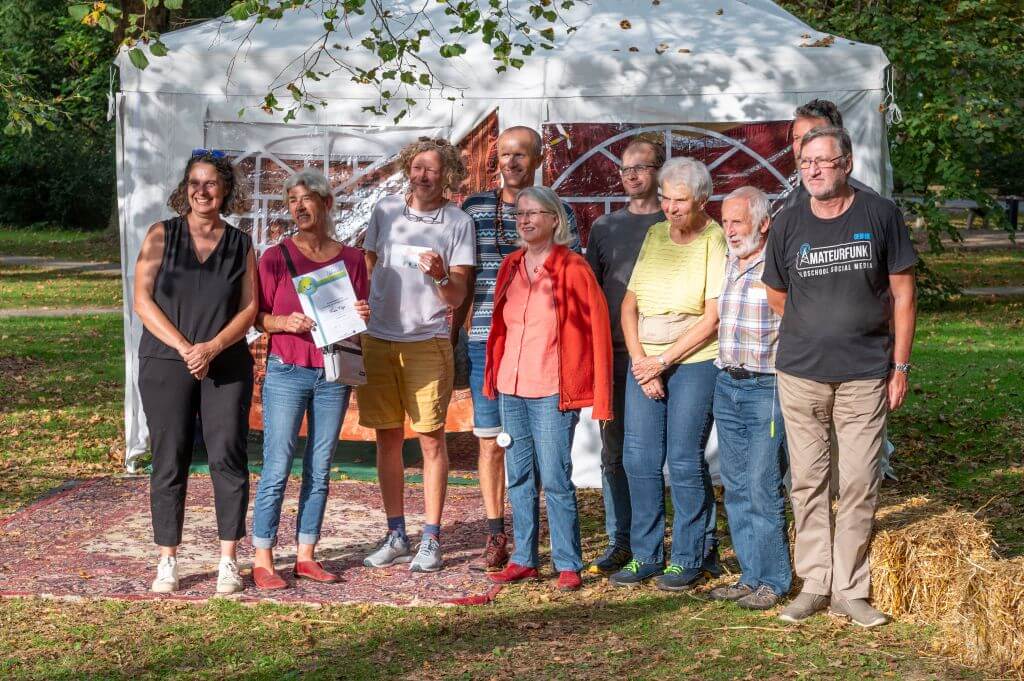
The aim of the „EEG Dreiklang 1“ project is that SME’s within the municipality of Gratwein-Straßengel and the regional business park, municipal organizations (such as administrative buildings, kindergartens, schools, the building of the volunteer fire department or sport clubs) and private households of the KEM region “Grat2” corporate as the Renewable Energy Community Dreiklang. The focus is on regional electricity purchase and the use of roof areas for the further expansion of photovoltaic plants. The goal is regional electricity purchase and the use of roof areas for the further expansion of photovoltaic plants. In this project, the establishment, implementation, and the accounting of a regional/local renewable energy community in the municipality of Gratwein-Straßengel as well as in the KEM region “Gratquadrat” will be conceived and implemented. For this purpose, the existing green power plant capacities in the region, active storage facilities, e-cars and heat pumps and the willingness to purchase regional green power will be investigated and further capabilities for active participation in the green power market like the participation in photovoltaic systems, load management and flexibilities will be elaborated and demonstrated.
EEG nahwaerme Reidling
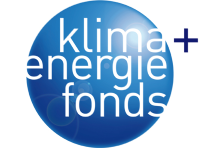
In the "EEG nahwaerme Reidling" project, an existing biomass district heating system in Reidling (Lower Austria) with currently 25 heating customers is being expanded to include a 20 kWp PV plant. The green electricity generated will be offered to existing heating customers within a (local) renewable energy community. In the final stage, the entire electricity and heat supply for the participants will be provided by EEG. Together with the technology partner Arteria, volume flow modelling for heat and electricity will be carried out to identify possible flexibility and sector coupling options. It is planned to apply the model to up to 60 additional biomass local heating locations of nahwaerme.at.
EEG Florianiberg
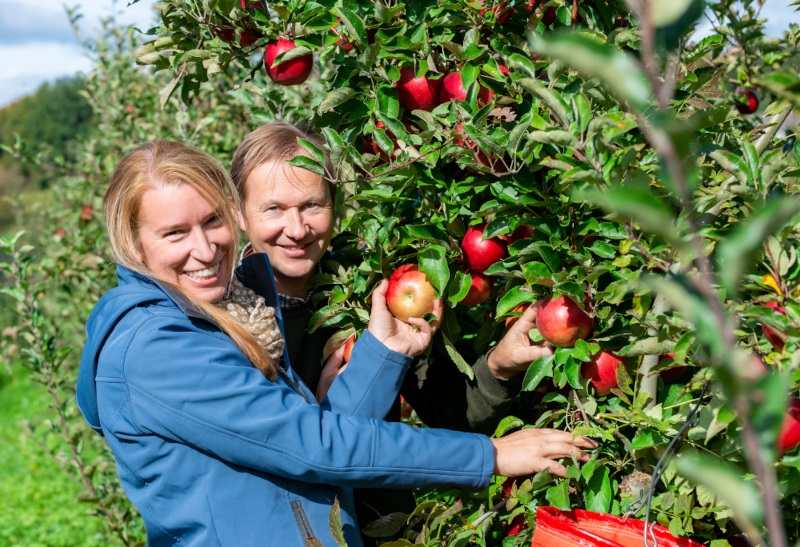
The aim of the “EEG Florianiberg” project is the establishment, implementation, and the accounting of a regional renewable energy community in the surrounding area of Graz. The renewable energy community focuses not only on private individuals, but also on direct marketers of agricultural products, as there are many similarities and overlaps in direct sales of sustainable agricultural products and regional green electricity. Many direct marketers are already active in the electricity market with PV systems, e-cars, and electricity storage. The goal is to connect regional producers (farmers, business enterprises) as direct energy marketers with regionally interested consumers through joint electricity trading.
General Terms and Conditions for the Supply and Purchase of Energy (German)
Declaration of membership (German)
Project Gartenimpulse

The aim of the project „Gartenimpulse - Aligning landscape gardening in a climate-friendly and ecological way” is to develop regional sustainability impulses in horticulture and an understanding of climate-friendly and ecological landscape gardening. Sustainable topics such as ecological sustainable fencing, biodiversity in the garden, adaptations to climate change in garden landscaping and digitalization options in horticulture will be added to the training and education programme of BFI Burgenland. To publicize these new training modules and to raise awareness among the population regarding ecologically sustainable horticulture, an impulse event and a gardening competition will be organized and implemented.
Brochure Gartenwettbewerb 2023 (German)
Designing of a climate-compatible and sustainable agriculture
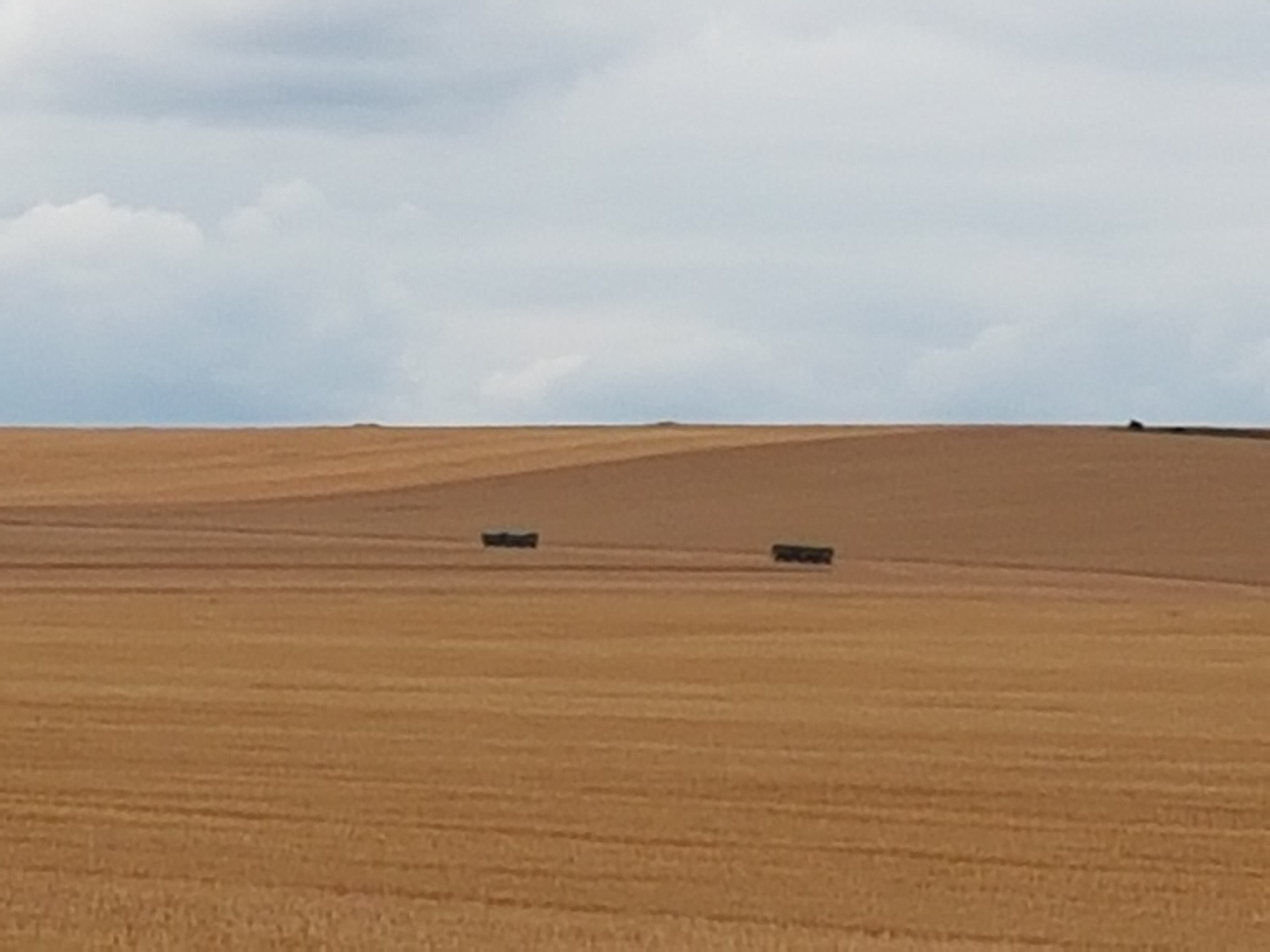
The goal of this project is the development of a climate-compatible agricultural model adapted to the Sömmerda region in Thuringia, which reflects the landscape aesthetics and quality of life. The superordinate task is the interaction of a new model of society in an area dominated by agriculture, in which the areas of economy, ecology, social life and culture are interwoven and of equal value. Further topics are: How can farmers enhance the ecological and aesthetic value of their land in the wake of climate change, without suffering economic losses or becoming increasingly dependent on subsidies? How can the agricultural landscape open up to new models of organization and appropriation that reintegrate the inhabitants and municipalities and give the landscape its own typology? What is regionally marketable, what needs to be developed and built up for regional marketing? Which regional development structures will be of great benefit in the future? The result will be a model-like and sustainable guiding principle for a new landscape typology, the cultural landscape of the 21st century, in which concrete and coordinated measures for a step-by-step implementation from 2020/21 are formulated and presented. In doing so, the landscape area in its complexity and multifunctionality is to be considered, networked and further developed.
Link to project page (IBA Thüringen)
Link of the final report (Klimakulturlandschaft)
Wind Turbine-Maintenance Course Turkey
The project "Wind Turbine-Maintenance Course" in Turkey is being implemented in cooperation with our partners in Austria and Turkey. The goal of this project is the development of a maintenance course for the qualification of the maintenance personnel of wind turbines and a subsequent transfer of the concept into its permanent operation. In the medium term, the planned wind turbine maintenance course is intended to offer the comprehensive and integrated education of wind power specialists, taking into account international standards (e.g. GWO). In the long term, it is planned to develop further courses in the field of renewable energies (e.g. photovoltaics, biomass use, geothermal energy, etc.) or in the field of maintenance (e.g. railways) and safety or quality management with the ARGE partner Yaşar University.
Wood Competence Centre Egypt Inception Phase
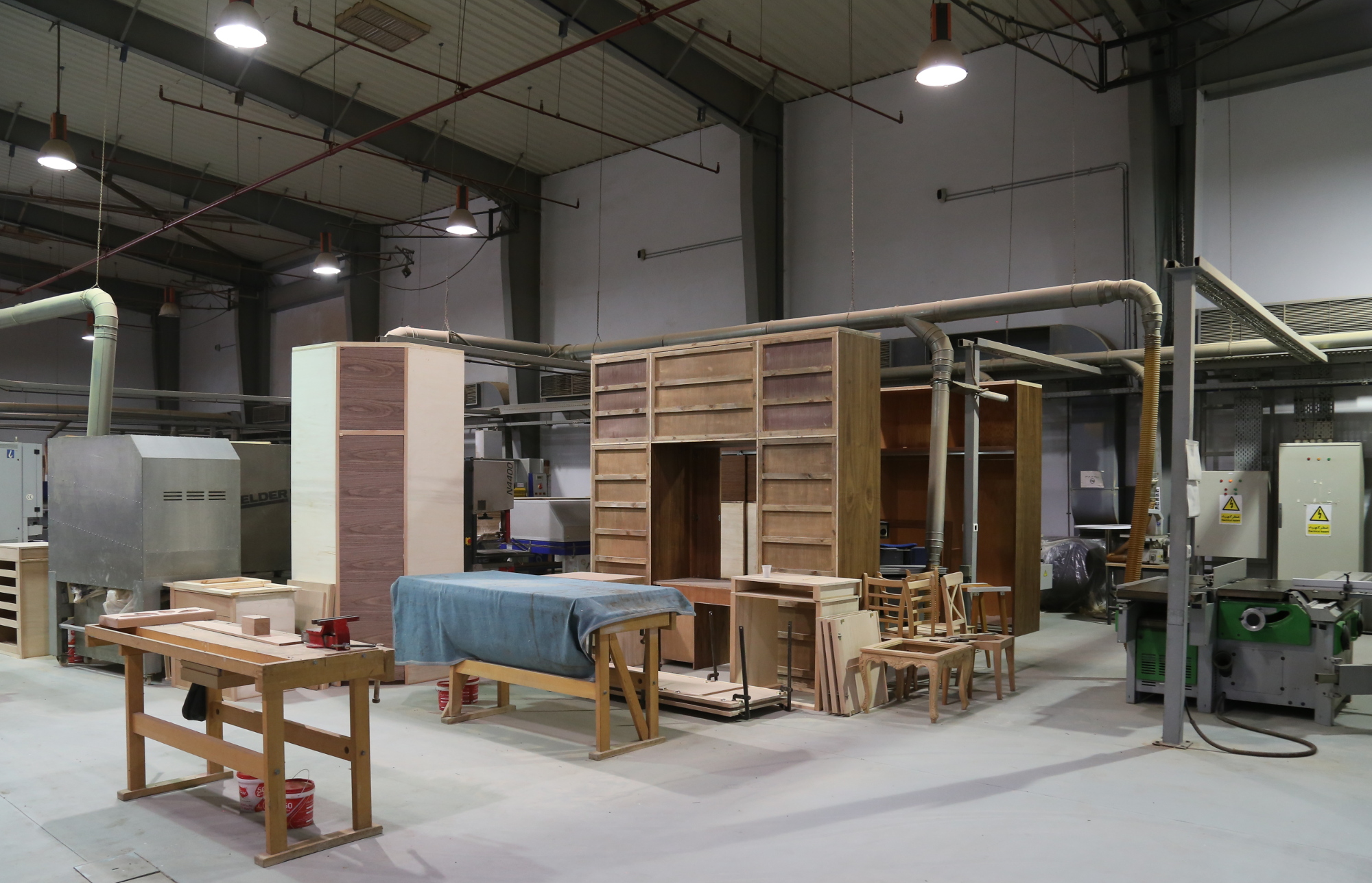
The project "Wood Competence Centre Egypt Inception Phase" aims for the development of a vocational wood competence centre in Egypt to increase local value as well as to revitalize the craft of Egyptian woodworking. The development of a training centre for wood processing in Egypt is intended to meet the rapidly growing demand of the local market with a sustainable local training strategy and to act as a role model for the whole of Egypt.
Promoting life-giving water with the power of the sun
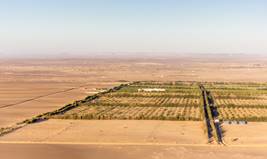
The project "greening the desert" is accompanied by Sekem Energy and was started by the SEKEM initiative in Egypt. A major challenge is to realize the energy supply of irrigation systems, such as the pivots in the middle of the desert, as the precious water has to be brought up from the depths. The objective of this project is to green 630,000 m2 (63 ha = 90 football pitches) of desert land for biodynamic agriculture and sustainable community development with solar power. With the installation of our first photovoltaic system in Al Wahat in the Bahariya Oasis, we have already gained extensive experience. Farm managers have also been trained to maintain the PV system. Now, based on this experience, further wells are to be built and the pivots will also be supplied with solar power. The project is to become a sustainable showcase project in which solar power, an abundant resource in arid countries, is used to lift and distribute CO2-free water from the depths. In cooperation with SEKEM experts and scientists from Heliopolis University, SEKEM will use this project to conduct a long-term study on the development of soil quality and to expand its specialist knowledge. The financing of this project will be realized by means of crowdfunding.
EUREVITA Pannonia

EUREVITA Pannonia is a Hungarian-Austrian INTERREG project for the development of a sustainable structure to revitalise cultural heritage and rare crafts. The aim of the project is to preserve and pass on old craft techniques in the area of buildings to the younger generation.
EUREVITA

EUREVITA is a Slovenian-Austrian INTERREG project for the development of a sustainable cross-border labour economy structure to revitalise cultural heritage and rare crafts. The aim of the project is to revitalise old crafts through innovative cross-border training and networking measures, thus preserving the rich history and great diversity of old rural and industrial crafts and trades.
Finding energy talents

In cooperation with the BFI Burgenland, measures are being developed to attract the interest and willingness for the large occupational field of "energy technicians" and to arouse the interest for the elementary level. The goal is to point out career opportunities and perspectives and to mediate in the course of various events/measures. The identification and promotion of technically gifted young people with talents in the field of energy technology/renewable energy is intended to strengthen the regional economy in the long term, to create regional jobs and to serve as a countermeasure to youth unemployment.
Apple microbiome
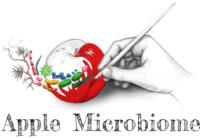
As part of the apple microbiome project, pupils and scientists from Graz University of Technology are investigating the microbiome of apples. The investigations should lead to new insights and to a reevaluation of our relationship with microorganisms. The aim is a scientific publication about the composition of the apple microbiome, as well as the development of a new, sustainable method for the storage of apples and an environmentally friendly management of apple diseases.
Paving new ways for sustainable photovoltaic solutions in Egypt

With their strategic alliance, four Austrian companies - Sekem Energy GmbH, Elektro Merl GmbH, BFI Burgenland and Sattler & Schanda Rechtsanwälte GbR - are making a contribution within the framework of a working group to create favourable framework conditions as well as theoretical and practical fundamentals for the successful use of photovoltaics (PV) in Egypt. Together with Egyptian partners - Heliopolis University, American University of Cairo as well as Vocational Training Centre Belbeis - technical knowledge about the professional installation and operation of photovoltaic systems will be made available. Local educational institutions will be supported in expanding their range of courses. Government agencies are given the opportunity to train their employees. Higher safety and quality standards in the PV sector will be defined and made available to the public. The project measures also include the survey of local technical possibilities, the local availability of components for PV systems, the construction of a PV demonstration system for research and training purposes, the training of PV technicians and the initiation of a PV platform in Egypt.
BIOCOMES
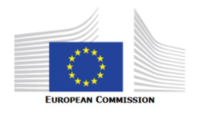
BIOCOMES is an EU research project that investigates the ecological evaluation of process steps in the production of conventional and biological pesticides.
Development of the Egyptian market for high-quality solar thermal systems

Egypt is an example of a country in upheaval. Severe political, economic and social difficulties characterise the country and its people. Solar thermal energy has an enormous economic and energetic potential, which has been up to now underutilized in this country. The purpose of the economic partnership is to adapt European solar thermal systems to Egyptian conditions and to make knowledge and technology available to the various educational institutions (in the form of vocational training and university education). In addition, cooperation is to be established with local companies so that high-quality solar thermal systems can be manufactured locally as much as possible in the medium term. The Austrian companies Sekem Energy, Pink and GREENoneTEC contribute their knowledge in the fields of solar technology, storage construction and strategic planning. The local partner company is Sekem, a producer of organic food, health products and textiles from ecological cultivation. In the economic partnership, (1) the technology will be adapted to the Egyptian requirements, (2) teachers and professors of the vocational training centre and the Heliopolis University will be trained in theory and practice and supplements for the curricula will be developed, (3) sales partners and suppliers will be trained in solar thermal energy and (4) measures will be implemented to create favourable framework conditions.

Following the completion of a successful solar thermal development project, Sekem Energy GmbH has launched a new project to put solar thermal energy on the Egyptian market. The continuation of this successful cooperation places a particular focus on a high local added value and the raising of awareness for sustainable solutions for a large audience in almost all social classes. To this end, a concept was developed in which Sekem Energy, together with the internationally active partners GREENoneTEC GmbH, Pink GmbH, Ingenieurbüro Reischl and other strategic partners, implements and coordinates the development of a value chain to which the Egyptian and Austrian partners contribute their know-how. 50% of this new project is supported by the Austrian Development Agency - ADA. One of the main goals of the formed Austrian-Egyptian strategic alliance is to provide solar thermal systems for hotel complexes to boost the Egyptian tourism industry. Furthermore, the greatest possible contributor of added value in Egypt is to be achieved in the medium term by locally available components and local specialists.
Green4City

This project develops a planning tool for urban planners and regional developers which shows the added value of greening in cities. It also evaluates the energy saving potential through greening (e.g. facade greening, roof greening, etc.).
The cup as packaging - biodegradable alternative to plastic cups

Valuepap offers project support and project development to companies from Salzburg (Valuepack), which replaces plastics with renewable raw materials. (E.g. the development of rottable and compostable coffee cups for vending machines)
ALP Autarkic food production
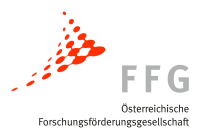
The companies involved complement each other with their products in the value-added chain of plant cultivation. Through the combination of their expertise and the 2-year practice-oriented qualification measures at BOKU, the partners strengthen their thematic leadership in food production with closed substance cycles. This enables them to meet the mega-trend of a sustainable economy and the customer demand for efficient self-sufficiency.
Qualification network for straw use in construction

Building with straw is a forgotten tradition in Austria, whose slow rediscovery and renewal can optimally serve the goals: low primary energy demand, cascading use of local resources or CO2 avoidance and reduction of import dependency due to available resources. The challenges in attaining these goals include a lack of "know-how", no uniformly known legal situation or licences as well as certifications that are not accessible to all. A qualification network with several essential university partners and network partners from the construction industry provide a targeted and effective remedy. In addition, the market pioneers can share already acquired knowledge with future partners and win them over for business relationships and establish recognized scientifically-based standards in processing legal certainty between suppliers and customers.
KMU - Energy efficiency check

The KMU Energy Efficiency Check provides consulting for KMU`s with the goal of an increase in energy efficiency and recognition of energy saving potentials (for enterprises in the Steiermark, Salzburg and Burgenland)
LW - Energy efficiency check

The LW Energy Efficiency Check provides consulting for agricultural enterprises. (E.g. sustainable raw material production, identification of energy saving potentials and rough planning of solar thermal and PV system concepts...)
Citizen participation facility Attendorf

This project investigates the development and planning of a citizen participation system with solar energy (PV) in the community of Attendorf.
Vitikult - Wine growers in Central Burgenland

This project explores the development of an energy system solution based on renewable energy for the redwine growers association VITIKULT (consisting of 8 excellent winegrowers)
Vitikult - Sustainable Process Index (SPI) Rating

The goal is to create an ecological evaluation of the process steps in red wine production and develop a concept for sustainable red wine production based on renewable energy.
Excursion management for renewable energy "Energieschaustraße"
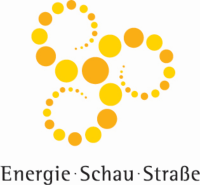
The goal is to develop an educational tourism concept based on regional value chains in the field of renewable energy. First, the "Energieschaustrasse" was implemented in Central Burgenland, later also in Southern Burgenland.
Welding school concept - Focus on renewable energy

This project involves a commission to develop a welding school concept and implement the welding school in Egypt.


